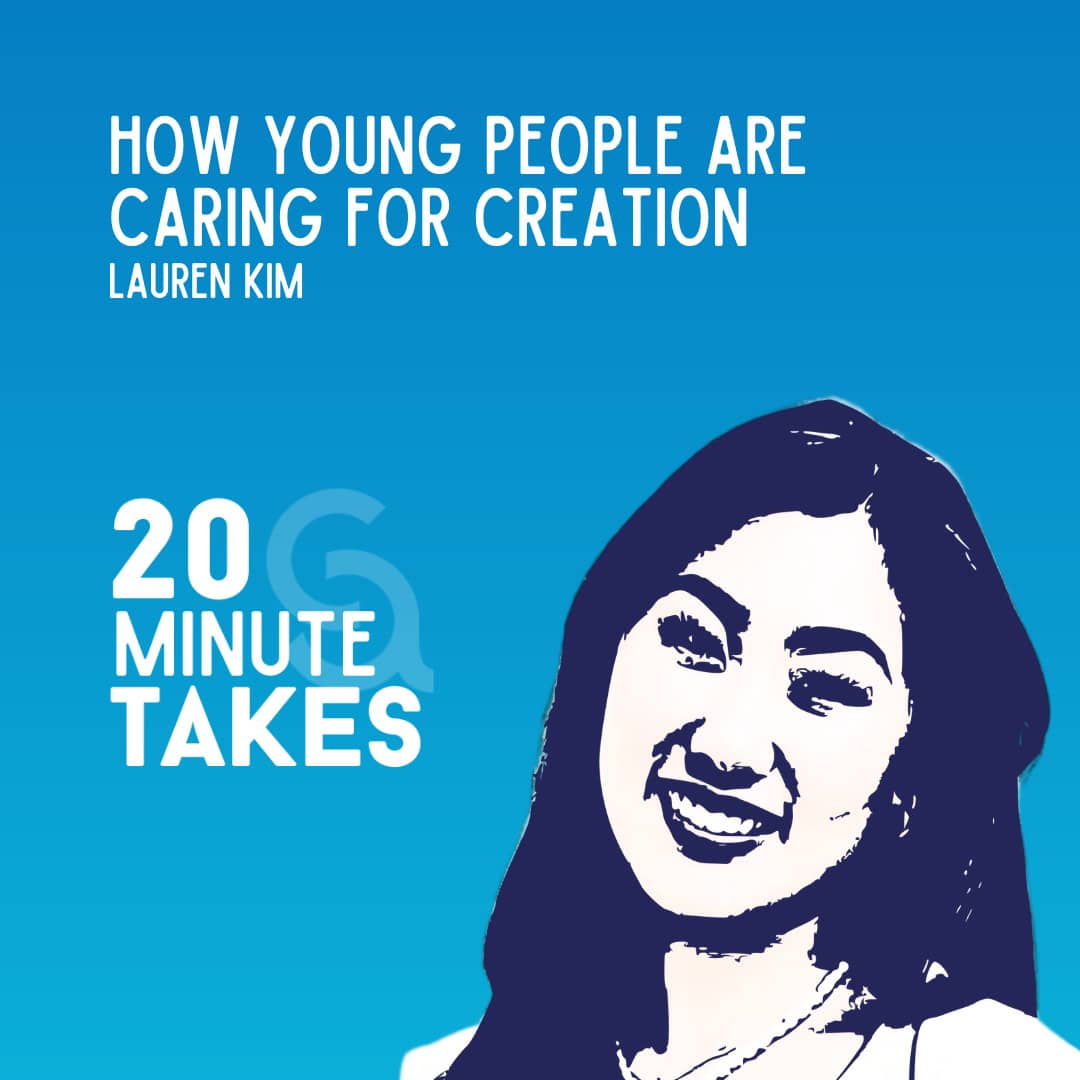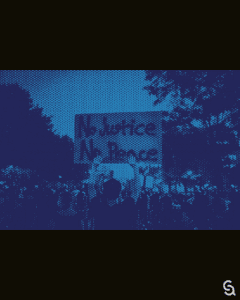What happens when caring for the planet becomes a spiritual discipline?
 In a new episode of 20 Minute Takes, host Nikki Toyama-Szeto speaks with Lauren Kim, National Organizer and Spokesperson for Young Evangelicals for Climate Action (YECA). Lauren shares how climate action became part of her faith, how Gen Z Christians are leading boldly, and why environmental care is a powerful expression of Christian witness. This is a summary of the episode. You can listen to it here.
In a new episode of 20 Minute Takes, host Nikki Toyama-Szeto speaks with Lauren Kim, National Organizer and Spokesperson for Young Evangelicals for Climate Action (YECA). Lauren shares how climate action became part of her faith, how Gen Z Christians are leading boldly, and why environmental care is a powerful expression of Christian witness. This is a summary of the episode. You can listen to it here.
Where Faith Meets Climate Action
“I’ve always seen God’s face most clearly in nature,” Lauren says. That deep connection with the created world left her frustrated when churches failed to talk about environmental stewardship—even though the Bible and worship songs so often reference God’s presence in creation. Through YECA, she found a community of Christians who see environmental work not as political, but as deeply spiritual.
Hope, Not Guilt
Unlike many secular climate organizations that carry a heavy burden of urgency and despair, Lauren says Christian activism is rooted in hope. “We don’t have to save the world on our own,” she explains. “Our small acts are seen and honored by God.” It’s a vision that allows Christians to act faithfully without being paralyzed by pressure or guilt.
Gen Z is Leading the Way
Lauren lifts up story after story of young Christians putting their faith into action. One YECA fellow taught kids at a summer camp about the dangers of plastic pollution; the next day, a camper corrected her mom on a fishing trip. Another student partnered with her college dining hall to rescue uneaten food and deliver it to a local shelter. “What God does to you, he wants to do through you,” Lauren says. Whether through gardening, education, or art, YECA encourages people to use their talents and local context to make a difference.
Creation Care Is Not Partisan—It’s Biblical
Many Christians avoid environmental action because it feels political. But Lauren urges a reframing: “Creation care isn’t partisan—it’s biblical.” She encourages churches and individuals to begin with simple, local conversations, asking questions like: What happens to our church’s food waste? Could we plant a garden? Are there sustainable practices we could adopt?
Modest Living as Spiritual Discipline
Lauren’s most surprising advice? Stop online shopping. She challenges Christians to rethink convenience and consumption, seeing restraint not just as ecological, but as spiritual. “When we limit ourselves, we’re protecting our neighbors and practicing discipline,” she says.
An Invitation to the Church
Lauren believes creation care belongs in every church’s ministry. “The cost of solidarity should be costly,” she says. “Christ’s sacrifice is our model.” Whether it’s leading a Bible study on creation care, rethinking infrastructure, or simply starting the conversation, churches have countless ways to show love for neighbor through environmental action.
Creation care is not an optional add-on to the Christian life—it’s a vital expression of love, justice, and faith. As Lauren reminds us, this work is part of God’s redemptive and reconciling mission—and we’re all invited to join in.


